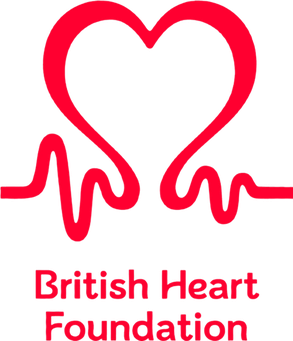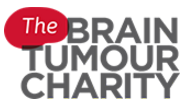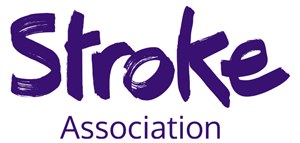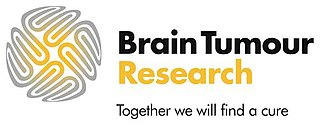
Cancer Research UK (CRUK) is the world's largest independent cancer research organisation. It is registered as a charity in the United Kingdom and Isle of Man, and was formed on 4 February 2002 by the merger of The Cancer Research Campaign and the Imperial Cancer Research Fund. Cancer Research UK conducts research using both its own staff and grant-funded researchers. It also provides information about cancer and runs campaigns aimed at raising awareness and influencing public policy.

Animal Free Research UK (AFRUK), formerly the Dr Hadwen Trust, is a UK medical research charity that funds and promotes non-animal techniques to replace animal experiments. Established in 1970, the work undertaken by Animal Free Research UK develops reliable science whilst avoiding animal testing.

The British Heart Foundation (BHF) is a cardiovascular research charity in the United Kingdom. It funds medical research related to heart and circulatory diseases and their risk factors, and runs influencing work aimed at shaping public policy and raising awareness.

Alzheimer's Society is a United Kingdom care and research charity for people with dementia and their carers. It operates in England, Wales and Northern Ireland, while its sister charities Alzheimer Scotland and Alzheimer Society of Ireland cover Scotland and the Republic of Ireland respectively.
The Cystic Fibrosis Trust is a UK-based national charity founded in 1964, dealing with all aspects of cystic fibrosis (CF). It funds research to treat and cure CF and aims to ensure appropriate clinical care and support for people with cystic fibrosis.

Marie Curie is a registered charitable organisation in the United Kingdom which provides hospice care and support for anyone with an illness they’re likely to die from, and those close to them, and campaigns for better support for dying people. It was established in 1948, the same year as the National Health Service (NHS).
The Multiple Sclerosis Society is the UK's largest charity for people affected by multiple sclerosis (MS). Based in London, it has offices and local groups in England, Northern Ireland, Scotland and Wales. It gained charitable company status in 2010.

The Brain Tumour Charity is a UK-based, Charity Commission registered, charity dedicated to funding research, raising awareness of brain tumours, reducing diagnosis times and providing support and information for people with brain tumours, their families and friends.

The Lord Dowding Fund for Humane Research (LDF) – a department of the National Anti-Vivisection Society, the world's first anti-vivisection organisation – awards grants to scientists undertaking medical research which benefits humans, without the use of animals.
JDRF is a nonprofit 501(c)(3) organization that funds type 1 diabetes (T1D) research, provides a broad array of community and activist services to the T1D population and actively advocates for regulation favorable to medical research and approval of new and improved treatment modalities. It was initially founded as the JDF, the Juvenile Diabetes Foundation. It later changed its name to the Juvenile Diabetes Research Foundation and is now known as JDRF.

The Motor Neurone Disease Association focuses on improving access to care, research and campaigning for those people living with or affected by motor neurone disease (MND) in England, Wales and Northern Ireland. MND is also known as amyotrophic lateral sclerosis (ALS) or, in the United States, Lou Gehrig's disease.

The Stroke Association is a charity in the United Kingdom. It works to prevent stroke, and to support everyone touched by stroke, fund research, and campaign for the rights of stroke survivors of all ages.
The Lupus Foundation of America (LFA), founded in 1977, is a national voluntary health organization based in Washington, D.C., with a network of chapters, offices and support groups located in communities throughout the United States. The Foundation is devoted to solving the mystery of lupus. Its mission is to improve the quality of life for all people affected by lupus through programs of research, education, support and advocacy.

The Royal Osteoporosis Society (ROS), formerly the National Osteoporosis Society, established in 1986, is the only UK-wide charity dedicated to improving the prevention, diagnosis and treatment of osteoporosis. It is based in Camerton, Somerset, England.
Autistica is a UK based charity engaged in funding and campaigning for research on autism and related conditions. Its research strategy is focused on improving the understanding of mental health, physical health, language and epilepsy in autism.
UK Community Foundations (UKCF) is a registered charity that leads a movement of community foundations committed to positive social change in the UK through the development of “community philanthropy”. Community philanthropy involves people from all parts of a community working together locally to use the financial and other resources available to them to improve others’ lives.

Genetic Alliance UK is a national charity and an alliance of over 200 patient organisations, supporting those affected by genetic conditions. Genetic Alliance UK's aim is to improve the lives of people affected by genetic conditions, ensuring that high quality services and information are available to all who need them.

Brain Tumour Research is a UK-based medical research charity dedicated to funding research, raising awareness of brain tumours. The charities vision is to find a cure for brain tumours of all kinds.

FOP Friends, formerly Friends of Oliver, is a registered charity in the United Kingdom established on 1 March 2012. It aims to raise funds that are needed to find effective treatments for the rare genetic condition fibrodysplasia ossificans progressiva (FOP). The charity also works to raise awareness and understanding of FOP amongst medical communities and the general public.

The Shake It Up Australia Foundation (SIUAF) is an Australian non-for-profit foundation founded in 2011 by Clyde and Greg Campbell. It is partnered with the Michael J. Fox Foundation (MJFF) to achieve the foundations primary aims of "promoting and funding Parkinson's disease research in Australia to slow, stop and cure the disease". Together MJFF and SIUAF are the largest non-government funders of Parkinson's research across multiple institutes in Australia. Since its founding, the foundation has co-founded 38 Parkinson's research projects across 12 institutes to the value of over $10.8 million. The foundation's funding model ensures that 100% of proceeds goes towards Parkinson's research in Australia. This is possible due to the founding directors covering all overhead costs and expenses. In January 2019, Shake It Up are one of the partner organisation in the Australian Parkinson's Mission which was awarded a $30 million-dollar grant to test repurposed drugs in clinical trials.













